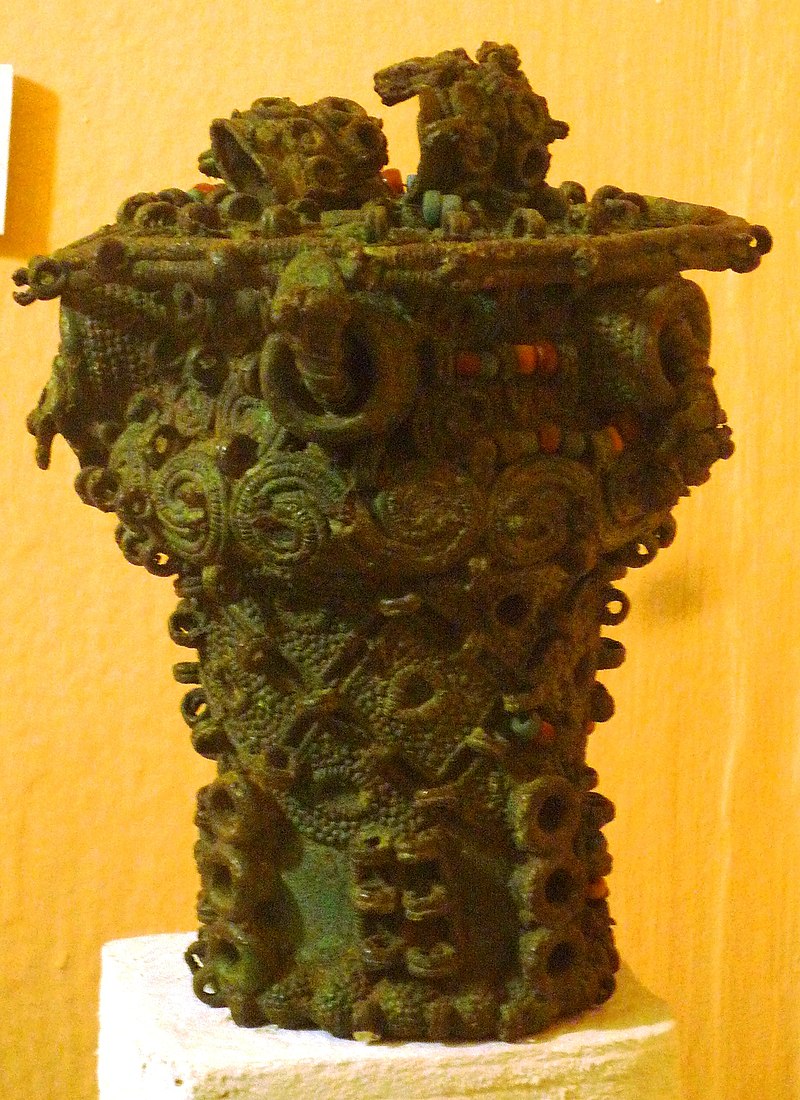Half of a Yellow Sun
★★★★★
A slow and steady burn that will break your heart. I became invested in the characters and just read, read, read my way down the perilous road they take. In some ways it felt like the exponential growth of COVID-19 cases on all of our minds right now; just a little bit worse, a little bit worse, then suddenly /so much worse/. I went in expecting, partly, to be schooled on African perspectives and African issues. Which this book certainly discusses. But I left having been schooled on WAR. This book gently but firmly refutes the heroic, adventurous, and male-soldier centric narrative that can feel so inspiring. It largely ignores the 100,000 military casualty slice of war, drawing your gaze instead to the 500,000 – 2,000,000 civilian casualties.[1]
I’m left curious about what things are like in Nigeria today.
 Igbo-Ukwu pot, perhaps similar to the one seen by Richard?
Igbo-Ukwu pot, perhaps similar to the one seen by Richard?
Selected quotations
He pushed any decisions away until the morning he woke up and thought about that day in Wentnor, when he was out playing and heard Molly calling him. "Richard! Supper!" Instead of answering "Coming!" and running to her, he dodged under a hedge, scraping his knees. "Richard! Richard!" Molly sounded frantic this time, but he remained silent, crouched. "Richard! Where are you, Dicky?" A rabbit stopped and watched him, and he locked eyes with the rabbit and, for those short moments, only he and the rabbit knew where he was. Then the rabbit leaped out and Molly peered under the bushes and saw him. She smacked him. She told him to stay in his room for the rest of the day. She said she was very upset and would tell Mr. and Mrs. Churchill. But those short moments had made it all worthwhile, those moments of pure plenary abandon, when he felt as if he, alone, were in control of the universe of his childhood. Recalling them, he decided he would end it with Susan. His relationship with Kainene might well not last long, but the moments of being with her, knowing he was not weighed down by lies and pretense, would make the brevity worthwhile. C.f. Rabbit, Run
[1]: Nigerian Civil War on Wikipedia, referencing ICE Case Studies, the Biafran Civil War